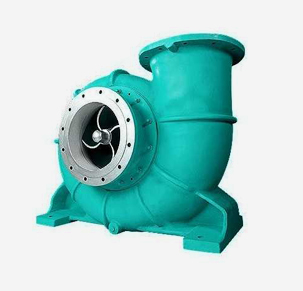Belarusian
- Afrikaans
- Albanian
- Amharic
- Arabic
- Armenian
- Azerbaijani
- Basque
- Belarusian
- Bengali
- Bosnian
- Bulgarian
- Catalan
- Cebuano
- Corsican
- Croatian
- Czech
- Danish
- Dutch
- English
- Esperanto
- Estonian
- Finnish
- French
- Frisian
- Galician
- Georgian
- German
- Greek
- Gujarati
- Haitian Creole
- hausa
- hawaiian
- Hebrew
- Hindi
- Miao
- Hungarian
- Icelandic
- igbo
- Indonesian
- irish
- Italian
- Japanese
- Javanese
- Kannada
- kazakh
- Khmer
- Rwandese
- Korean
- Kurdish
- Kyrgyz
- Lao
- Latin
- Latvian
- Lithuanian
- Luxembourgish
- Macedonian
- Malgashi
- Malay
- Malayalam
- Maltese
- Maori
- Marathi
- Mongolian
- Myanmar
- Nepali
- Norwegian
- Norwegian
- Occitan
- Pashto
- Persian
- Polish
- Portuguese
- Punjabi
- Romanian
- Russian
- Samoan
- Scottish Gaelic
- Serbian
- Sesotho
- Shona
- Sindhi
- Sinhala
- Slovak
- Slovenian
- Somali
- Spanish
- Sundanese
- Swahili
- Swedish
- Tagalog
- Tajik
- Tamil
- Tatar
- Telugu
- Thai
- Turkish
- Turkmen
- Ukrainian
- Urdu
- Uighur
- Uzbek
- Vietnamese
- Welsh
- Bantu
- Yiddish
- Yoruba
- Zulu
Telephone: +86 13120555503
Email: frank@cypump.com
Ліст . 14, 2024 10:42 Back to list
pump service
Understanding Pump Services Essentials for Optimal Performance
In today's industrial landscape, pumps play a crucial role in various applications, ranging from water supply and wastewater treatment to oil and gas extraction. The efficiency and reliability of these systems are heavily dependent on the quality of pump services. This article delves into the importance of pump services, their types, and best practices for maintaining optimal performance.
What is Pump Service?
Pump service encompasses a broad range of activities aimed at ensuring that pump systems operate efficiently and effectively. This includes installation, maintenance, repair, and troubleshooting of pump systems. Providing timely and professional pump service can significantly enhance the lifespan of equipment, reduce operational costs, and minimize downtime, which is critical in industries where constant operation is vital.
Types of Pump Services
1. Installation Proper installation is the foundation of reliable pump operation. This service includes selecting the right pump for the application, ensuring correct alignment, and securing all necessary fittings. Professionally installed pumps are less prone to failure and perform better over time.
2. Routine Maintenance Regular maintenance is essential for preventing pump breakdowns. Scheduled inspections can identify potential issues before they escalate, saving time and money. Maintenance tasks may include checking seals, bearings, and lubrication systems, as well as cleaning filters and replacing worn-out parts.
3. Repairs Even with the best care, pumps may occasionally experience failures. Repair services involve diagnosing issues and restoring the pump to its operational state. This can range from simple fixes, such as replacing a gasket, to more complex solutions, like reconditioning the pump components.
4. System Upgrades Technological advancements constantly emerge in pump technology. Service providers can help upgrade existing systems to improve efficiency, energy consumption, and performance. This might involve replacing old pumps with modern, energy-efficient models or integrating advanced control systems.
pump service

5. Troubleshooting When a pump fails, a systematic approach to troubleshooting can accurately identify the root cause of the problem. This service helps determine whether the issue lies within the pump itself or in related components, such as valves, piping, or electrical systems.
Advantages of Professional Pump Services
Engaging a professional pump service provider offers several advantages
- Expertise Certified technicians possess in-depth knowledge of pump systems and can execute tasks with precision, ensuring compliance with industry standards. - Safety Proper pump operation is crucial for safety. Professional services help mitigate risks associated with malfunctioning equipment, protecting personnel and the environment. - Cost-Effectiveness While there’s an upfront cost associated with professional services, investing in regular maintenance and expert repairs can lead to significant cost savings in the long run. Efficient pumps consume less energy and incur fewer repair costs over time.
Best Practices for Pump Maintenance
To ensure longevity and performance, consider implementing these best practices
- Regular Inspections Schedule routine inspections to catch issues early. Such inspections should cover all components, including motors, seals, and electrical systems. - Maintain Cleanliness Keeping the surrounding areas clean can protect pumps from contaminants that may lead to failures. - Monitor Performance Use monitoring tools to track the performance of pumps. Anomalies in flow rate, pressure, or vibrations may indicate the need for maintenance. - Maintain Proper Documentation Record all maintenance activities, repairs, and performance metrics. This documentation can provide valuable insights over time and help in troubleshooting future issues.
Conclusion
Pump services are vital for the smooth operation of various industrial processes. By understanding the importance of these services and implementing best practices, businesses can enhance the efficiency and longevity of their pump systems. Investing in professional pump service not only safeguards operational continuity but also ensures compliance with safety standards while delivering cost-effective solutions for the long term. Whether it’s routine maintenance or dealing with unexpected repairs, prioritizing pump services is a key strategy in sustaining business productivity.
-
ISG Series Vertical Pipeline Pump- Chi Yuan Pumps Co., LTD.|High Efficiency&Compact Design
NewsAug.02,2025
-
Heavy-Duty Mining Sludge Pumps - Wear-Resistant Slurry Handling
NewsAug.02,2025
-
Horizontal Split Case Pump with GPT-4 Turbo | High Efficiency
NewsAug.01,2025
-
ISG Series Pipeline Pump - Chi Yuan Pumps | High Efficiency, Durable Design
NewsAug.01,2025
-
Advanced Flue Gas Desulfurization Pump with GPT-4 Turbo | Durable & Efficient
NewsJul.31,2025
-
ISG Series Vertical Pipeline Pump - Chi Yuan Pumps | Advanced Hydraulic Design&Durable Construction
NewsJul.31,2025










